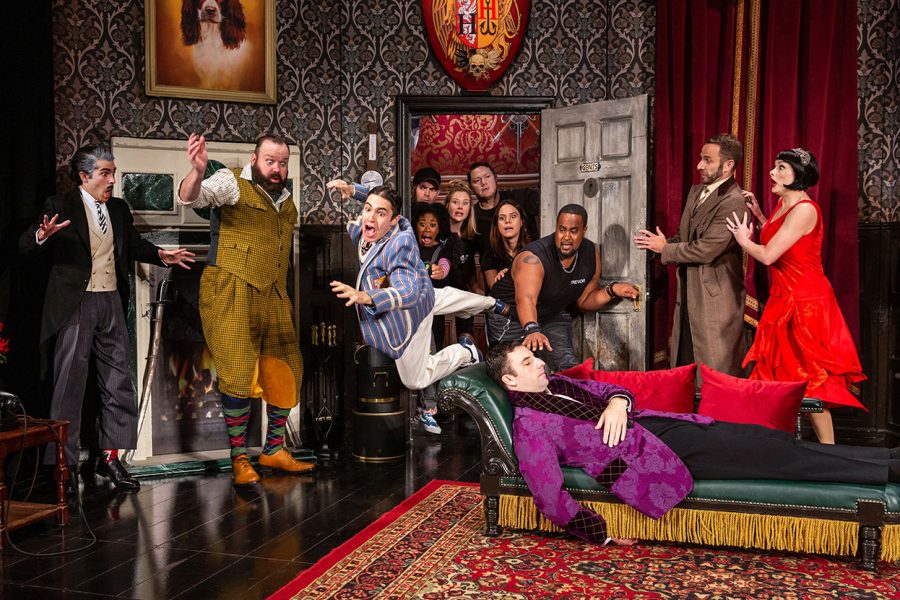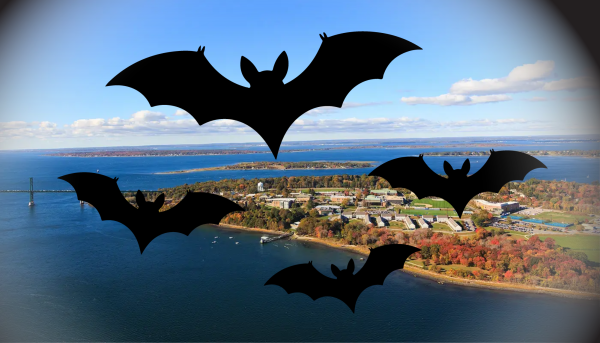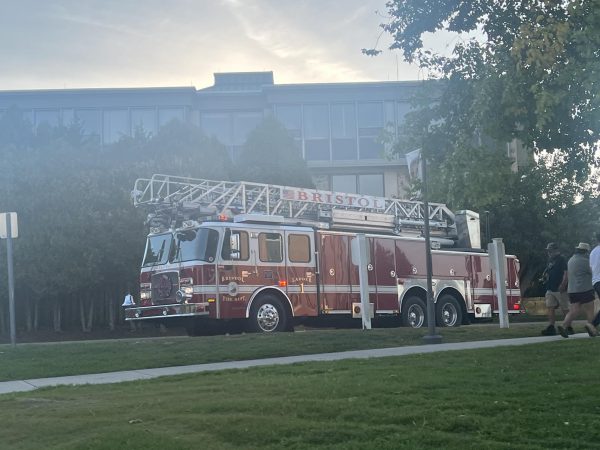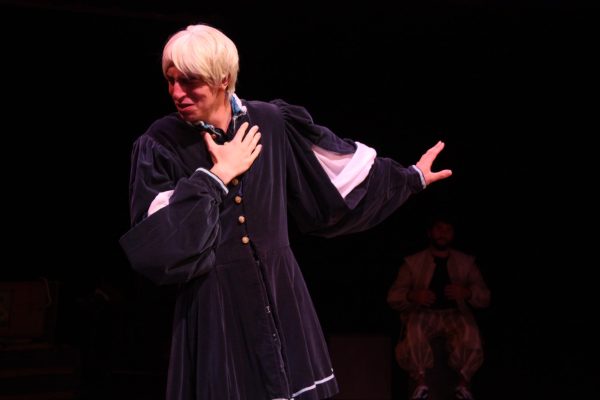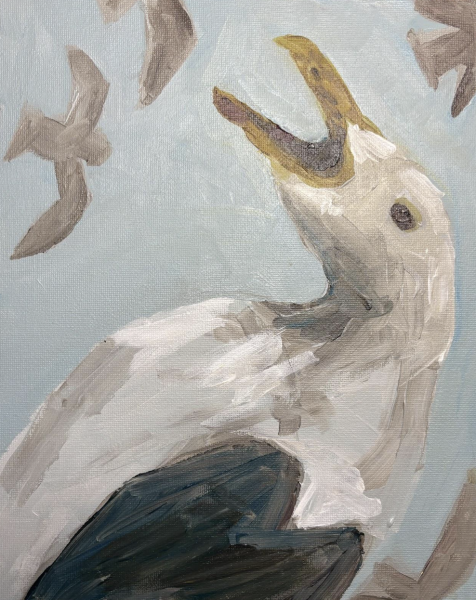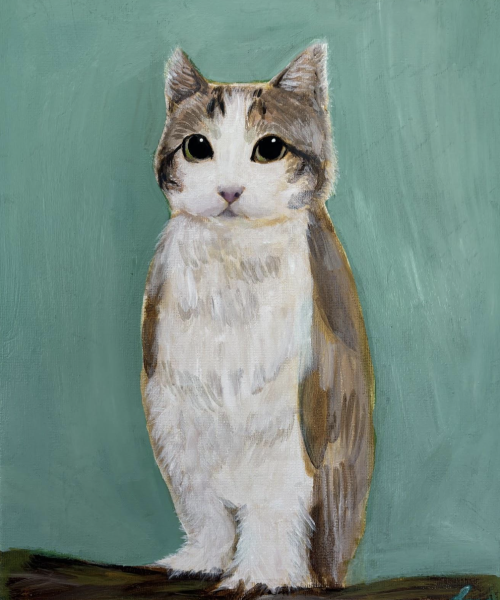Why Does “The Play That Goes Wrong” Feel So Right?
A harried actor shoots a furious glance at his hapless castmate as the man dashes off the stage in some distress, having just slammed his arm in the set’s door. Shaking off the incident– this is far from the first mishap of the evening– the actor sinks down onto a chaise lounge centerstage.
“That’s queer,” he says loudly. “There’s something underneath these cushions. A ledger?”
He pushes the cushions aside– nothing.
The actor blinks. “A– a ledger?”
He peers down at the floorboards– nothing.
The actor begins to panic.
“A ledger! A ledger? A ledger…a…ledger– ledger–”
At last, he collapses onto the lounge in defeat, head in hands. The theater is silent.
Then–
“It’s under the couch,” yells a young girl in the front row.
The actor looks up.
“What?”
“It’s under the couch,” she repeats.
The actor stands, his face turning crimson, and glares at the audience member.
“What are you doing? This is a serious play! There is no audience participation! This isn’t ‘Sesame Street!’ And it’s a ‘chaise lounge,’ not a bloody couch!”
The audience, who have been snickering at the actor’s many misfortunes all night, descend into borderline hysterics.
This is “The Play That Goes Wrong,” one of the many theatrical productions mounted by the United Kingdom-based Mischief Theatre Company. The group specializes in slapstick comedy shows featuring a fictional university theatre troupe that’s endlessly plagued by mishaps, from scenery malfunctions to ridiculously blundering actors. The company began as an improvisational comedy group– roots that are still evident in their unique brand of humor today– and have mounted six West End productions since their founding in 2008. “The Play That Goes Wrong” won the company its first Olivier Award and to date is the only Mischief production to have made the jump across the pond from the West End to Broadway.
The humor present in “The Play That Goes Wrong” and productions like it is nothing new; one only needs to glance at the view counts on blockbuster movies’ blooper reels to confirm the popularity of performance mistakes and malfunctions. Even the play’s highly physical slapstick moments, popularized by groups such as The Three Stooges, are somewhat familiar. But something about this fascination with performances going wrong goes beyond the draw of “a disaster you just can’t look away from.” For whatever reason, we find these sights not only intriguing but cause for great hilarity.
Perhaps it is the subversion of formality and expectations audiences inherently possess when stepping into a theater, movie or otherwise. Even when a performance is live, we expect it to be polished to perfection, an invisible fourth wall irrevocably separating players from observers. This break from the line found when celebrities crack up after a terrible take or a theatre actor can’t get a prop to work provides the surprise humor so often hinges on.
Another facet of this idea that Mischief Theatre exploits so well is the mental divide between entertainers and their audience. Sitting down for a show or movie necessitates a suspension of disbelief, or in this case, pretending you have no idea the man who just “died” a horrible death in 19th century Paris is sitting backstage scrolling through Twitter. For an hour or two, the actor ceases to exist, and everyone accepts that this character has taken their place. This makes for an extremely uncomfortable experience when something legitimately (and awkwardly) goes wrong onstage. The audience is pulled out of the story and cringes at the hiccup. But with the added layer of a fictional theatre troupe, the mishaps themselves are the story. The cast is playing fictional actors who are playing fictional characters…if you can wrap your head around that for a moment.
In this way, the audience is afforded permission to laugh at others’ misfortunes the same way we would when watching Ross make a fool of himself on a rerun of “Friends.” Actors fall off sets and crew members are knocked unconscious, but there is no need to worry– they will pop right back up again just like the Saturday morning cartoon characters of the past century.
As the saying goes, if you do not laugh, you will cry, and “The Play That Goes Wrong” not only invites you to laugh– and snort, and yell, and loudly poke fun at the actors– it depends upon it. If they do not create an atmosphere where audiences feel comfortable enough to laugh at the mishaps of an endearingly hopeless theatre troupe, then they have failed before they have even begun. But through encouraging audience participation at the beginning of the show and even a fake program introducing our fictional cast, “The Play That Goes Wrong” lets us all in on the joke.
“The Play That Goes Wrong” is currently playing Off-Broadway in New York City, but you can stream Mischief Theatre’s BBC television series “The Goes Wrong Show” and their TV specials on YouTube or BroadwayHD.

